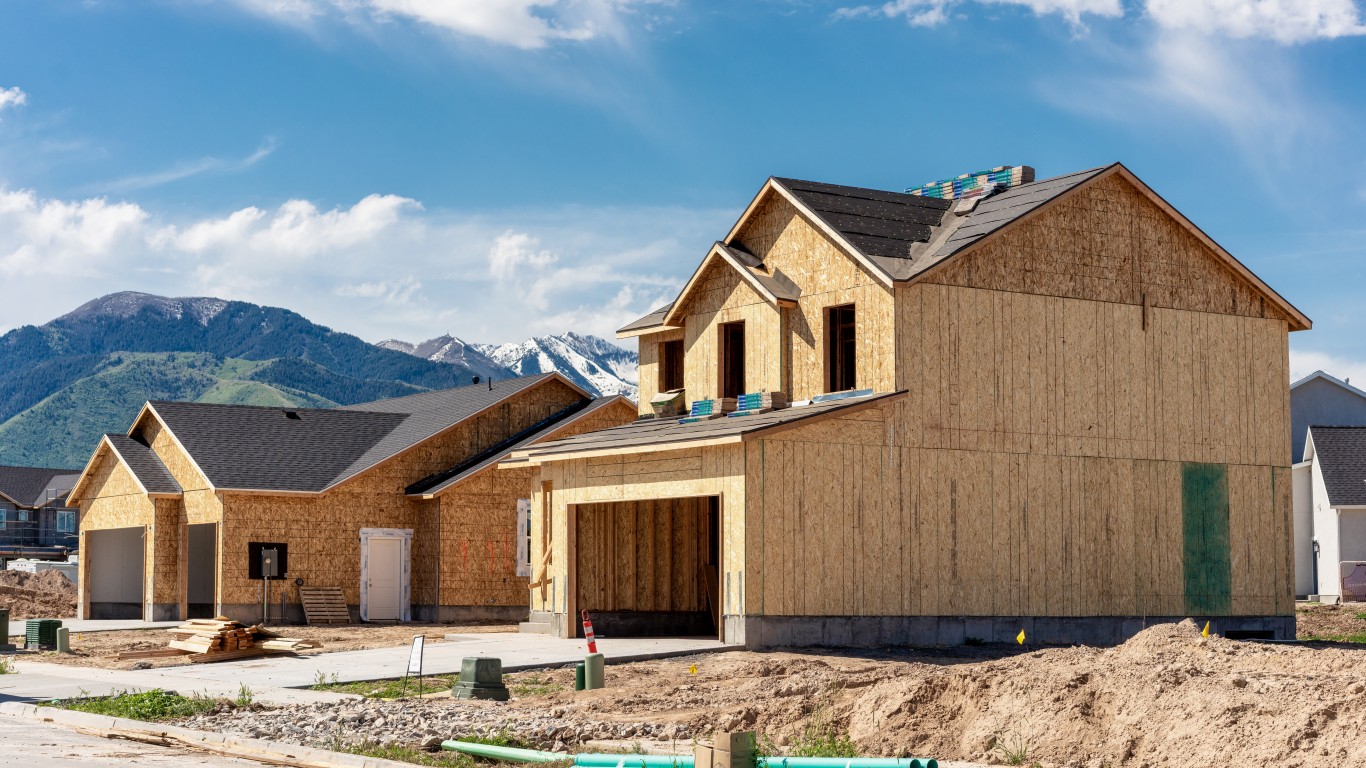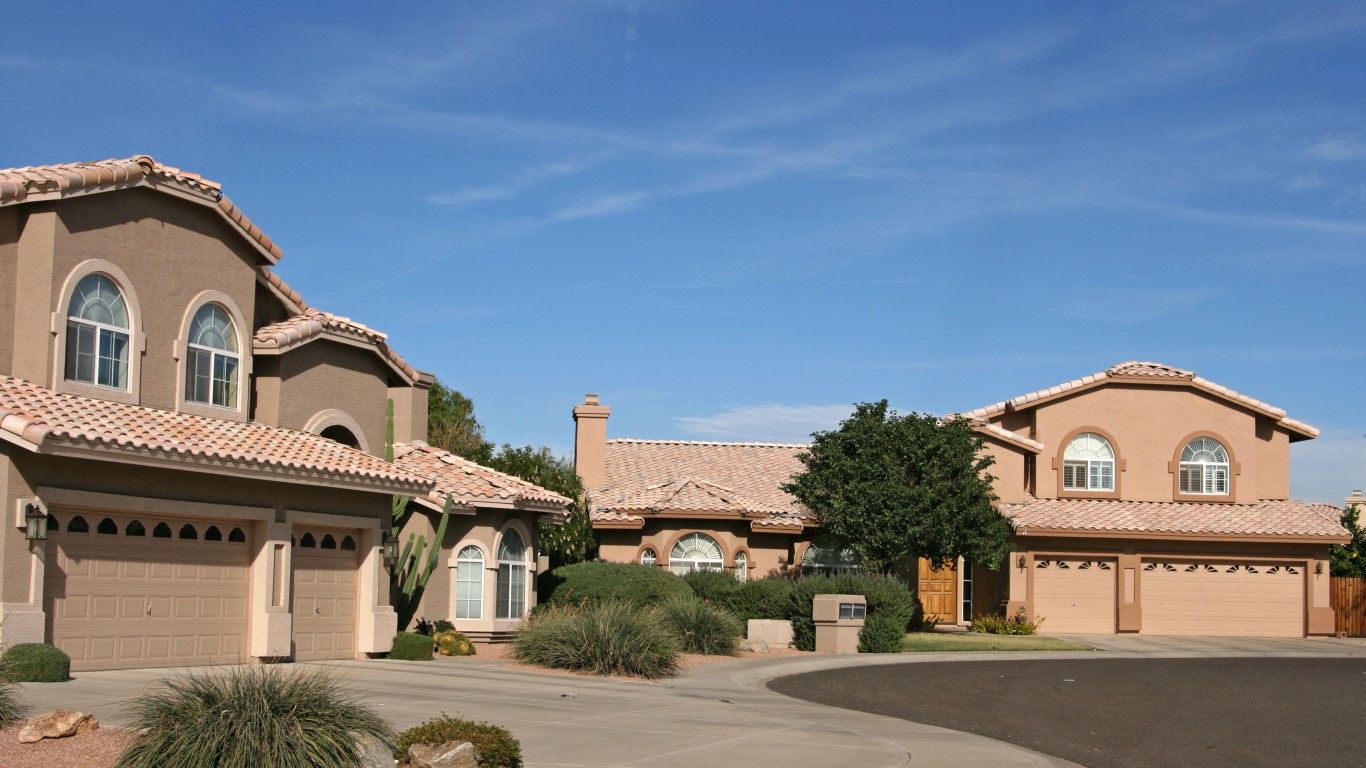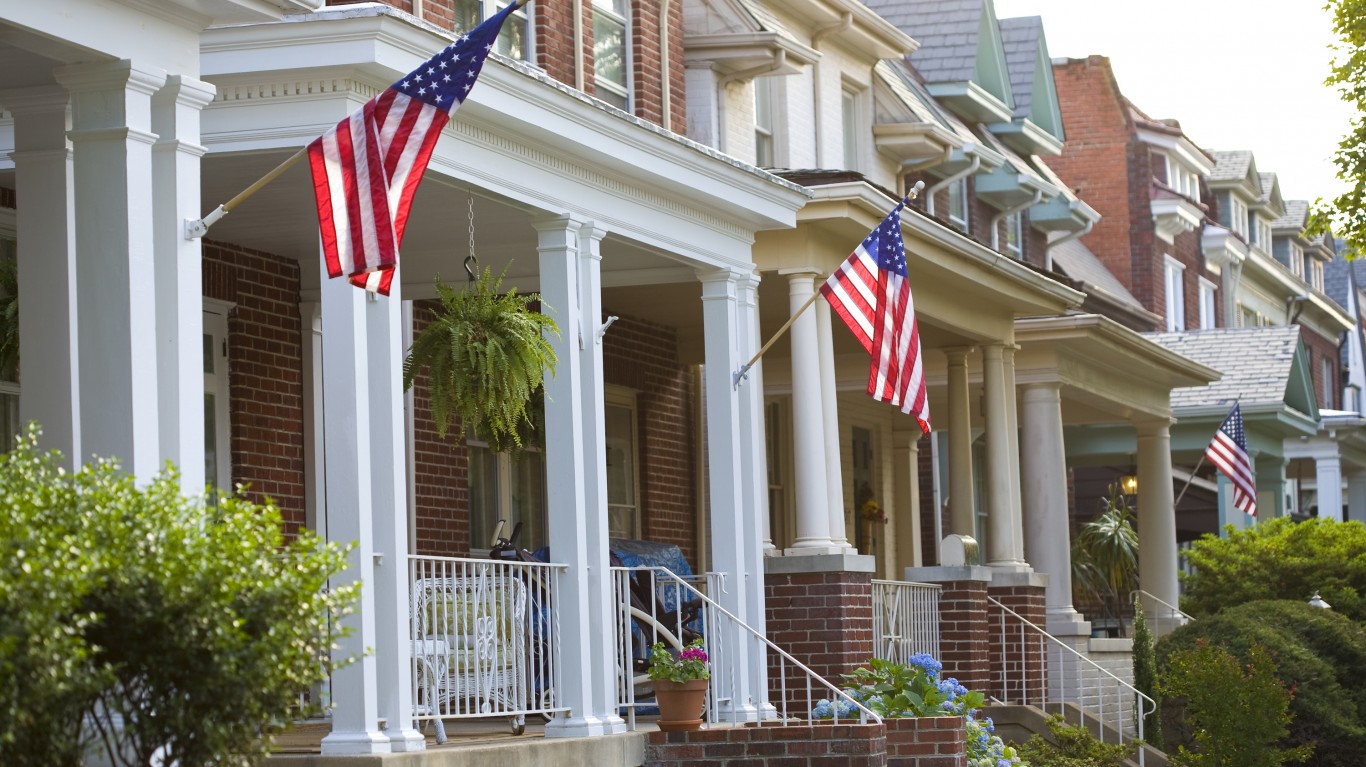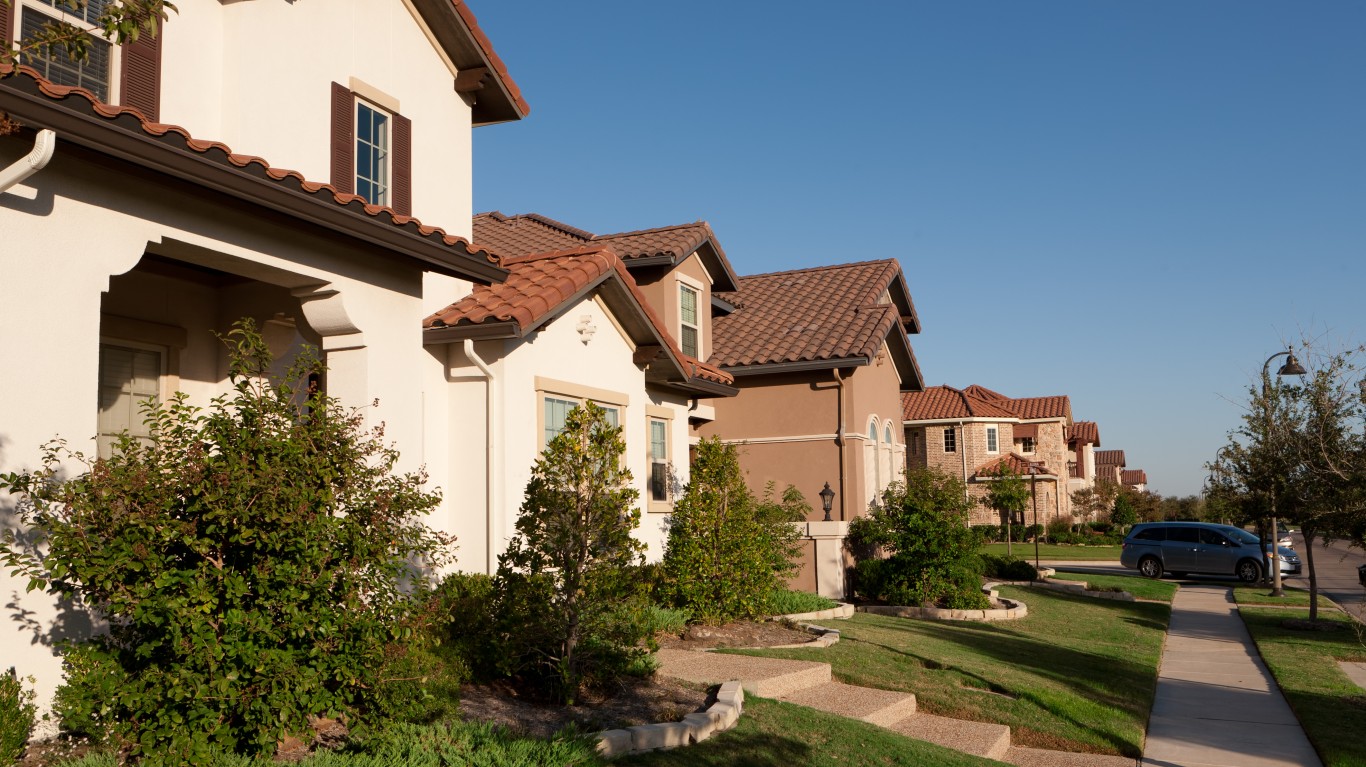
To give you an idea of how tight the U.S. residential real estate market has become, look at what’s going on in Ketchum, Idaho, about 150 miles west of the state capital of Boise.
Housing in this tourism-dependent town of fewer than 3,000 residents is so scarce the mayor recently floated an idea of establishing a tent city for local workers who are unable to find permanent quarters, according to the Wall Street Journal. The city council rejected the proposal, but it illustrates the lengths to which officials are willing to go to deal with the housing crunch. (These are the cities where home values are rising the fastest.)
Thanks to low interest rates and a wave of demand, some of which has been fueled by urban exoduses of affluent people fleeing Covid-19 hot spots like New York City, housing inventories have shrunk while the cost of raw building materials has skyrocketed. Entire regions of New England and the West, from tiny tourism-dependent communities to larger metro areas, have been hammered by home-price inflation since the spring of 2020. (See what is now the most expensive zip code in your state.)
Click here to see the states where home prices went up the most
To identify the states that had the largest home price increases in 2020, 24/7 Wall St. reviewed the price insights report published July 6 from property information company CoreLogic. The ranking is based on the year over year change in home prices based on CoreLogic’s home price index for May 2020 and May 2021.
For the purpose of comparison, we obtained each state’s annual median home value from the U.S. Census Bureau’s 2019 American Community Survey. 2019 is the latest year for which such data is available.
Those who own non-mortgaged homes have certainly become wealthier than they were last year. According to property information provider CoreLogic, the national average increase in home equity increased $30,000 in May 2021 compared to May 2020. In some markets, that figure is higher, while buyers fight local bidding wars over limited available housing.
As home value continues to appreciate, market watchers see no end in sight — yet. According to the Mortgage Bankers Association, however, housing starts are expected to rise considerably over the next two years, which should provide some relief to near-future homebuyers.

10. Oregon
> May 2020 to May 2021 home price chg: 17.6%
> Median home value in 2019: $354,600 — 7th highest
Homeowners without mortgages in Oregon’s two largest cities, Portland and Salem, have experienced the value of their home equity rise by $46,000 and $42,000, respectively, in the 12-month period through May 2021. That’s above the national average of $30,000.
[in-text-ad]

9. New Hampshire
> May 2020 to May 2021 home price chg: 18.9%
> Median home value in 2019: $281,400 — 15th highest
New England home prices rose around 19% in the 12 months through May 2021, with New Hampshire trailing Rhode Island and Vermont, but averaging more than three percentage points above the national average.

8. Washington
> May 2020 to May 2021 home price chg: 19.1%
> Median home value in 2019: $387,600 — 6th highest
Seattle has one of the hottest home markets in the country, with a 20.2% rise in prices for single-family homes in April 2021 from a year earlier. Spokane County, at the border with Idaho, experienced a similar increase.

7. Vermont
> May 2020 to May 2021 home price chg: 19.2%
> Median home value in 2019: $233,200 — 25th highest
The Green Mountain State experienced the second-highest increase in New England home prices in the 12 months through May 2021, as home-buying outsiders flocked to the region during the Covid-19 pandemic.
[in-text-ad-2]
6. Rhode Island
> May 2020 to May 2021 home price chg: 19.3%
> Median home value in 2019: $283,000 — 14th highest
Perhaps owing to a demand for oceanside real estate between Massachusetts and Connecticut, Rhode Island led the New England region in home-price inflation, led by sales of condominiums.

5. Montana
> May 2020 to May 2021 home price chg: 19.5%
> Median home value in 2019: $253,600 — 21st highest
Montana’s hot real estate market is impacting home prices in even the smaller cities of a state whose population is barely a million. Communities like Bigfork, Whitefish, and Laurel, all with populations of less than 10,000, experienced an average home price rise well above the state’s average.
[in-text-ad]

4. Indiana
> May 2020 to May 2021 home price chg: 20.2%
> Median home value in 2019: $156,000 — 6th lowest
The northwest Indiana region near Lake Michigan and Chicago, which includes the city of Gary, has witnessed some of the nation’s highest jumps in home prices. Lafayette is also a hot home market in the state.

3. Utah
> May 2020 to May 2021 home price chg: 20.4%
> Median home value in 2019: $330,300 — 11th highest
Utah keeps breaking its own home price records, with the price of single-family dwellings far above the statewide average in Salt Lake City and nearby Weber and Davis counties, with no end in sight to the price inflation.

2. Arizona
> May 2020 to May 2021 home price chg: 23.4%
> Median home value in 2019: $255,900 — 19th highest
Arizona home prices are rising at the fastest pace since 2005 — so fast in fact that sales have reportedly started to slow recently in the Phoenix metro area because many buyers can’t afford to pay what’s being asked.
[in-text-ad-2]

1. Idaho
> May 2020 to May 2021 home price chg: 30.3%
> Median home value in 2019: $255,200 — 20th highest
Spokane, Washington, and neighboring Coeur d’Alene, Idaho, share one of the hottest housing markets in the country. Home prices in the town of Ketchum in central Idaho are so high that local workers are struggling to find housing.
It’s Your Money, Your Future—Own It (sponsor)
Retirement can be daunting, but it doesn’t need to be.
Imagine having an expert in your corner to help you with your financial goals. Someone to help you determine if you’re ahead, behind, or right on track. With SmartAsset, that’s not just a dream—it’s reality. This free tool connects you with pre-screened financial advisors who work in your best interests. It’s quick, it’s easy, so take the leap today and start planning smarter!
Don’t waste another minute; get started right here and help your retirement dreams become a retirement reality.
Thank you for reading! Have some feedback for us?
Contact the 24/7 Wall St. editorial team.





